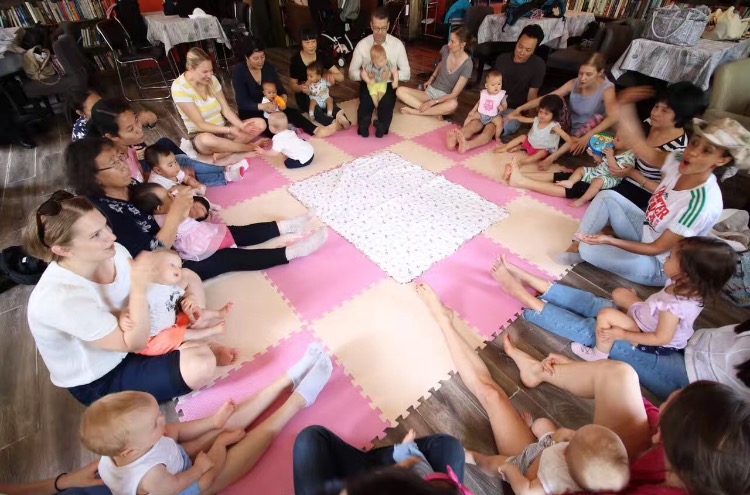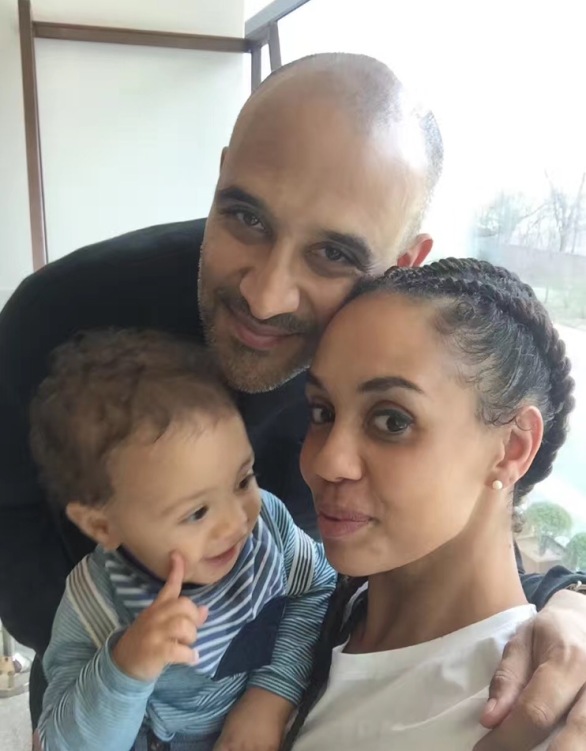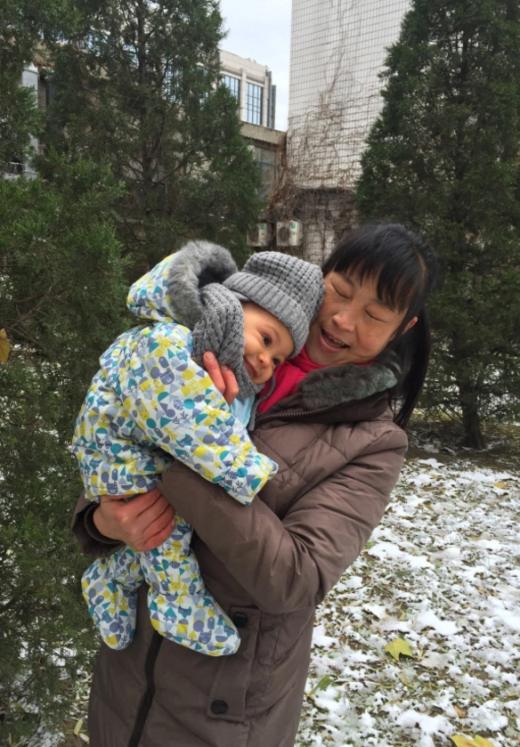by Eva Rishon
Hannah Ryder, with a caramel tan and carefully groomed cornrows, sits quietly at Nooxo, a gentle smile on her face. Her dewy skin has a charming glow to it. Is this what post-pregnancy glow looks like?

Less than a year after giving birth to her first child here in Beijing, Hannah has an ambitious vision: to create the first ever wholly Kenyan-owned enterprise in the capital of China. This recent entry into the business world is a big change from her 15-year career as a Kenyan civil servant. But her responses have a flair for being diplomatic and empathetic – traits that inform her new venture as a consultant.
“I’ve always had an interest in China,” Ryder said. “I have been interested in China because I realized quite early on that China is having a big impact on poorer countries like Kenya, and so I felt that if I wanted to do something positive for the rest of the world, understanding and engaging China would be the key.”
That’s what brought her to China in the first place. Hannah got a job with the United Nations in Beijing, where she was brought in for two years to scale up their work with China.
Through her work, she realized that many types of people came to the UN – partners who wanted to improve their relationship with China, representatives from the developing countries like Kenya, and heads of Chinese non-governmental organizations who wanted to reach out to those countries but were not sure how to go about doing so.

Safari Song in action.
It was then that Hannah discovered there was a big gap between these various entities in Beijing, and she decided there was money to be made in building a consultancy business to bridge the gap. People want to make things happen, she observed, and they want a facilitator to make things happen quickly. And so she has positioned herself as that person who makes things happen. Her clients include businessmen, organizations and sometimes other entrepreneurs who are unfamiliar with the African market.
How it started
Hannah confesses, however, that she isn’t a born entrepreneur. Inspired by her infant son, she started her first business called “Safari Song” last year, a playgroup for babies under 18 months old. When she lived in the UK, Hannah took her niece to similar playgroups, where the babies sang nursery rhymes to stimulate their emerging senses. After researching and finding there was nothing similar in Beijing, she concluded it was a propitious opportunity to start such a group.
“This was a new ‘Hannah attitude,’” she said. “In the past, I’m not the kind to be like ‘let me just start, let me just do this.’ But I just thought, ‘Well, let me just see how this goes if no one comes, no one comes, it doesn’t matter.’”

Hannah and her family.
So she spoke to a bookstore, they said yes, lots of people turned up, and she is still running it today.
“It just made me think, well, why don’t I apply this attitude to the rest of my life of just do it, just see how it goes, don’t worry about it too much, just be patient but don’t feel that you’re not in control, actually you can just do things, you can make things happen,” she reflected.
Now, in the summer, her first foray into entrepreneurship runs every Friday and Saturday at The Bookworm at Sanlitun.
“I think my previous non-mother self would not have been in this situation where I would have just done something, just tried it out in a small way and it works. Now, I’m doing that and I feel like I could take that to my bigger business,” she said with a giggle.
As for her latest business? “It’s going okay, I think,” she said with just the slightest hesitation. “I feel like it’s going okay.”
Her thoughts come so naturally she barely has to stop to think before adding, “I’ve been trained to be a researcher from my work as a civil servant, so I do a lot of research to then get to each point and when I do research. Also, I’m not afraid to reach out to people and ask questions,” she said. “I’ve been asking lots of different people for advice, people who’ve been in the consultancy field in China, people who just have, any kind of businesses in China, and also lawyers, as well.”
Ryder’s business has not yet matured, but the young entrepreneur thinks her business plan is sound.
“I’ve got a long way to go still, but I think, because I’m taking it step by step and testing everything as I go, it feels like it’s been quite smooth so far,” she said. “The quicker I can get the business going, the quicker I can start meeting clients’ needs.”
On her family
Ryder, like other female entrepreneurs before her, experiences what many new working mothers feel: guilt. After realizing she now needs to be more disciplined with her time, she is more careful with where she chooses to focus her time.

Caption: Hannah’s son with her Ayi who takes care of her son while she works. Photo courtesy of Hannah Ryder.
When it comes to her husband, Hannah’s love for him is written on her face. “He just provides my emotional support, you know, when I’m feeling like I don’t know why I am trying to do this, that it’s going to be too difficult, when I’m finding something too confusing, he just helps me to sort it out,” Ryder gushed. “I really couldn’t do it without him.”
This year marks their tenth anniversary.
“We’re both trying to help each other move forward in our careers. We’ve always been doing that. It’s great to have that rock behind me,” Hannah said as she ate her vegan salad bowl, then, she adds, “next to me, rather.”
More giggles. Maybe that was her diplomatic side showing through.
So, is Kenya or China home?
As for home, many aspects of China remind her of Kenya. For one, a typical, cheap Chinese staple that you can get for a couple of yuan – bing — reminds her of Chapatti back in Kenya.
“When I was in Kenya I used to always, always love chapatti. My son loves it too,” she said.
It is not just bing that reminds her of home. Describing the streets of Beijing, she said, “You know when you go out onto the streets and they have the tuktuks, and some people might be selling some fruit, the open-air market, these kinds of things? Those things are the things you’d find in Kenya: just people who are themselves, who are just trying to make a way.”
She lays out more details – in development, they call this the informal sector.
“There are all these rules to ‘formalize’ the informal sector but for me, they are what makes a country really alive,” she said. “These are the people of the streets. The people who are inventive, they are creative.”
Hannah beams. “Every day I’d go to work – most days I cycle but when I was pregnant I used to sometimes take the tuktuks – getting to know those guys who drive them more, that made me quite happy,” she said with a sheepish smile, “in my very broken Chinese”.
And so, after they part ways, the streets of Beijing continue to beat on and Hannah continues her entrepreneurial journey.

